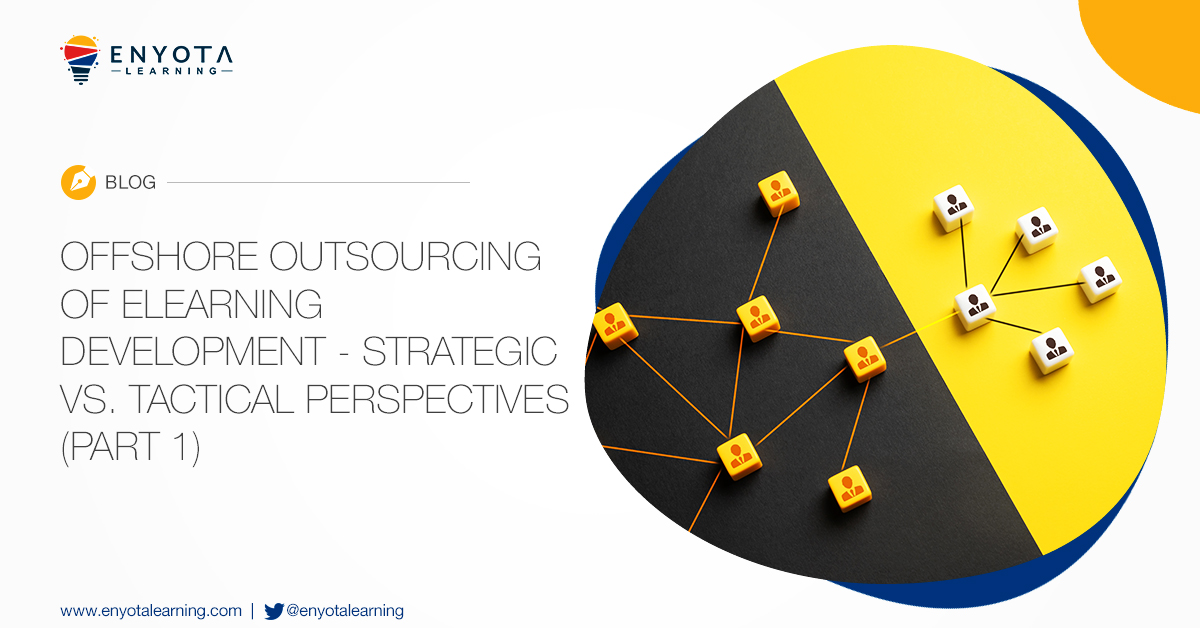In today’s modern workplaces, social learning is becoming increasingly important as a way of fostering collaboration, knowledge sharing, and employee development. Social learning refers to the process of acquiring knowledge and skills through interaction with others. It can occur both in formal settings such as training sessions, and informally through everyday interactions with colleagues.
We are past the halfway mark in 2022 and it is time to revisit an old but interesting topic – Social learning theory. Till recently, the talks around social learning had gathered quite some momentum. And we are taking an in-depth look at the topic in this article. Why? Social learning presents a very promising solution to knowledge transfer among peers and this knowledge transfer is valuable because most of it is experience-based knowledge transfer. Experience-based knowledge transfer is when one experienced employee transfers their learnt, applied, and tested knowledge to another employee.
In social learning, knowledge transfer can occur via one-on-one conversations, group discussions, mentoring, or compiling knowledge into an eLearning course and delivered to learners. Group discussions, mentoring, and one-on-one knowledge transfers though useful are rather considered informal methods of training. Whereas, using your employees as SMEs (subject matter experts), whose knowledge is compiled into engaging eLearning courses that can be distributed to everyone is a more formal method of training.
To understand the importance of social learning theory in the workplace, we need to start from the start:
What is and Who Developed the Social Learning Theory?
Social learning is a concept of learning and development which is based on the cognitive theory of learning. The cognitive theory of learning states that – the learning process occurs by accepting or rejecting the observed behaviour of people in a social setting. And, people continue to learn and develop when presented with equal rewards or punishments that are called operant conditioning.
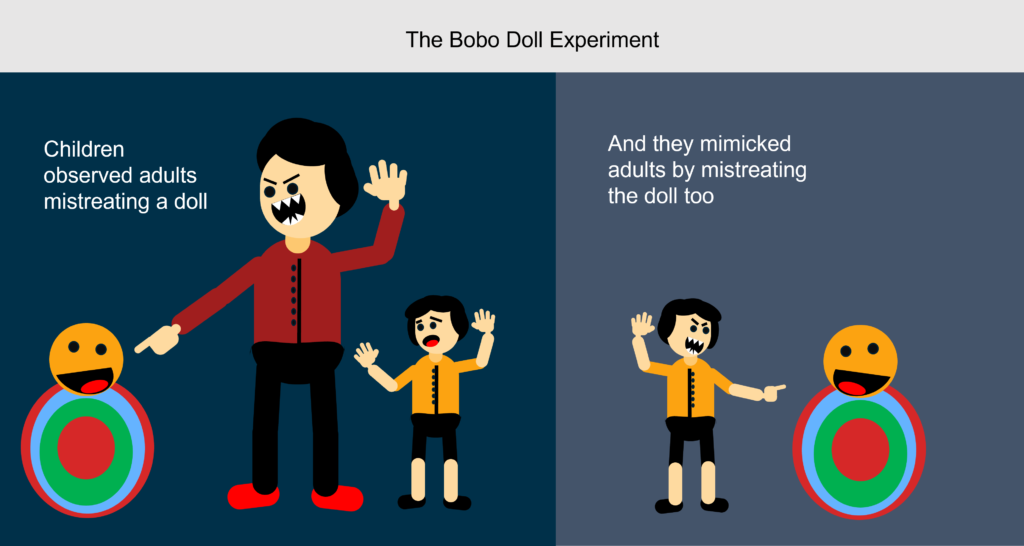
Psychologist Albert Bandura proposed this theory. Bandura stated that cognitive factors alongside experiences and reinforcement of facts aid the process of learning.
This theory is famously recreated in the experiment carried out by Albert Bandura called Bobo Doll Experiment. The psychologist and his team verbally abused a doll in front of a group of preschool children, who then went on to mimic the adult’s behaviour.
How Learning Occurs in Social Cognitive Theory?
Behaviourists originally proposed that learning takes place by enforcing accepted facts and experiencing environments. It is then that Bandura’s theory added that learning also takes place by observing other people.
One may never have driven a car or used a hammer. But everybody knows that the steering wheel guides the car and a hammer drives in a nail.

People understand actions by observing others perform important actions frequently. As a result, they already know what to do. Now, it’s just down to getting hands-on experience.
The Importance of Social Learning in Today’s Workplace
The importance of social learning at the workplace has doubled since the proliferation of technology enabled learning. Socializing with colleagues and peers is an integral part of the day in the life of an office-going employee. Many employees regularly learn the corporate ropes by either interacting with peers or by observing superiors.
Using eLearning, this knowledge can now be taken from one-on-one conversations to the attention of all employees who may need it. But that doesn’t mean socializing or learning through social interactions will or should stop as well.
Social learning can still exist albeit over a learning management system where informal learning and information flow will continue to flourish as a digital format of social interactions and learning.
Importance of Social Learning at Work
Supports a Wide Array of Learning Behaviour
Some people prefer learning by observing while others may learn by experience. And because social learning relies on peer-to-peer knowledge transfer, it broadens how people receive information. To pinpoint knowledge transfer in a social setting can be tedious. But, there is no doubt that information transfer is a huge part of any social interaction nevertheless.
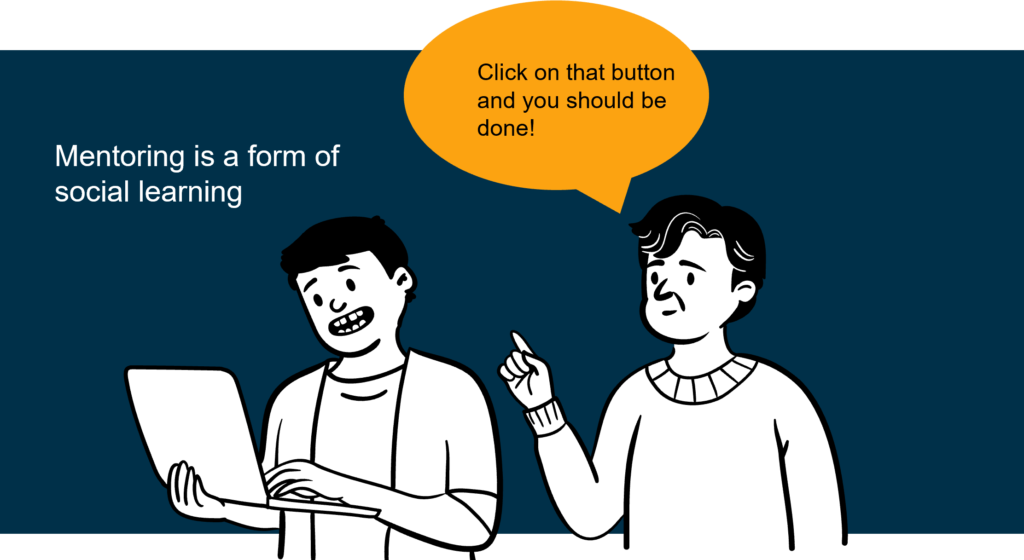
The very dynamic nature of any social interaction makes it easy for people with varying learning needs to learn in a friendly environment. It acts as a great supplement to formal learning and development.
Carries an Element of Socializing
People complain about the missed social interactions during the lockdown. However, eLearning and the LMS have something to contribute here.
In situations where peer-to-peer interactions cannot be had, having a full-functioning social interaction feature on your LMS will only assist with information flow and meaningful corporate conversations.
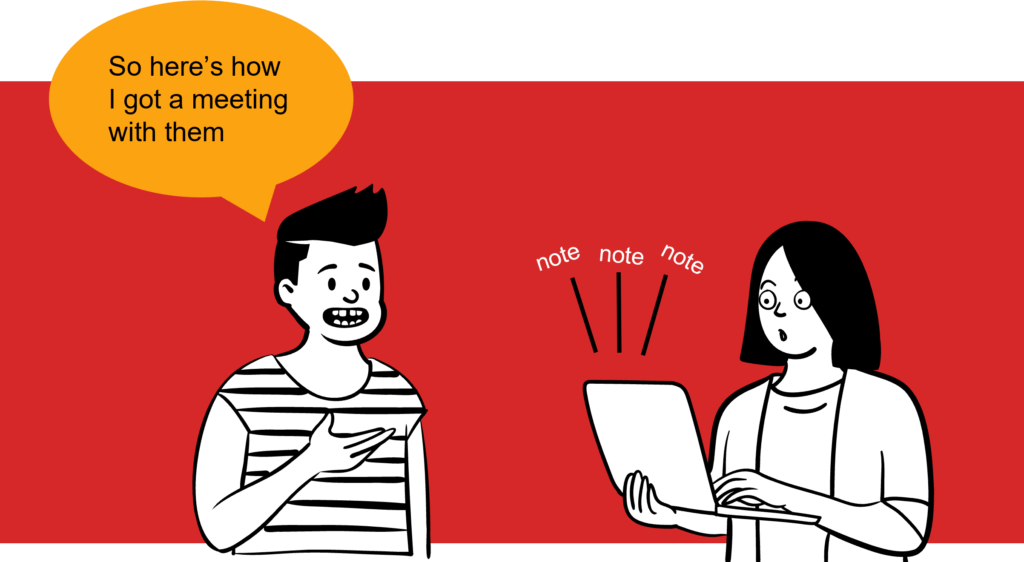
Conversing with peers is a big part of social learning. Implementing any form of social learning in a controlled and monitored environment like an LMS will keep the learners stimulated while maintaining control over the topics being discussed.
Increases the Speed and Retention of Information
Social learning also covers an important aspect of ‘speedy information’ transfer between peers, where one has already found the solution to an existing challenge and is readily sharing it with others. This helps reduce the time spent by others on researching the same topic.

The big upside to this phenomenon is that any solution found by one employee will greatly resonate with others and be retained for longer. As peers share common obstacles and challenges, the solution that one finds should theoretically work well for others too.
An established social link facilitates and encourages peers to share relevant information with greater speed. Each employee acts as a node of knowledge transfer in this link. This scenario may appear too idealistic for the real world. However, it is something that defines a healthy corporate learning environment and is something that every L&D team must strive towards at their workplace.
Social learning does agree with intrinsic reinforcement. Where helping others will positively ensure help for yourself.
Supports Peer-to-Peer Motivation
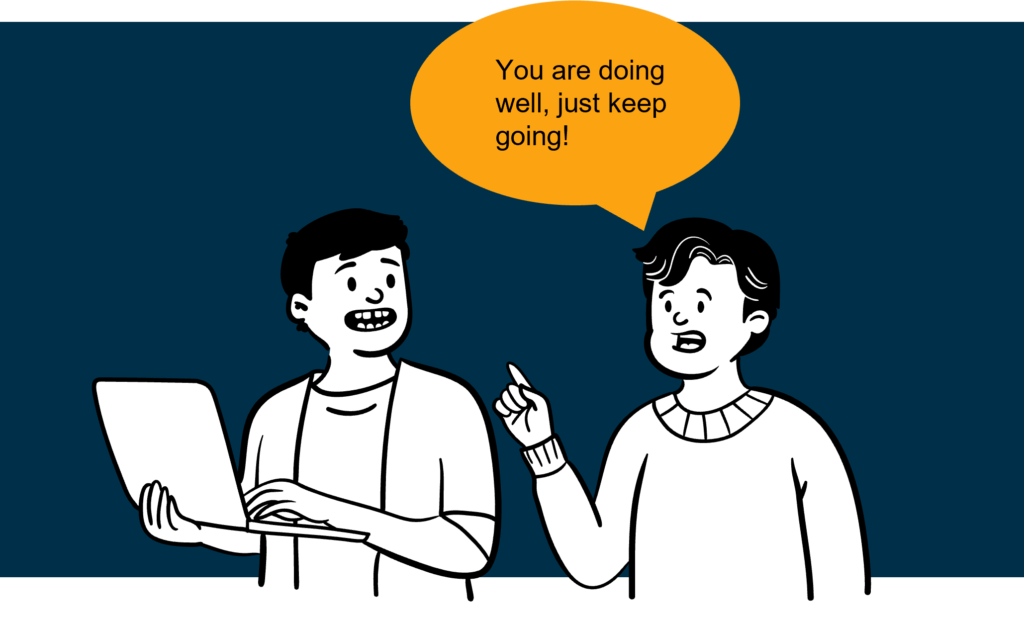
As discussed earlier, operant conditioning plays a huge role in training employees in the social learning framework. Good performance is rewarded and bad is looked down upon. In the social learning framework, making an example of the good performers is a huge part of the learning process. Employees are motivated when others are rewarded. And somewhere, they wish to succeed as well.
How Can We at eNyota Help?
In conclusion, social learning is a valuable tool for organizations looking to foster collaboration, improve knowledge sharing, and support employee development. By creating opportunities for employees to learn and grow together, organizations can improve their overall performance and create a positive workplace culture.
We are a custom eLearning development and design house that specializes in converting your training content into engaging and result driven eLearning courses. As an organization interested in adopting a social learning framework, you can use our custom development services to provide the eLearning content needed to train and develop your employees.
We also license our advanced learning management system,Abara LMS, with social learning features and more. If you’re interested in knowing more about our eLearning offerings or the learning management system, reach out to us at contact@enyotalearning.com or click here asa to fill a short call-back form.



